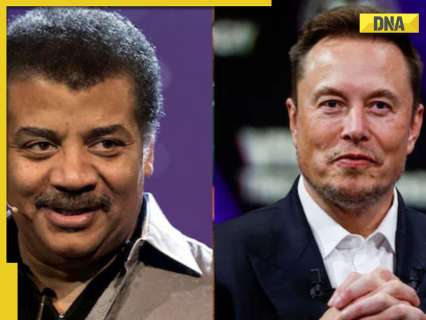
Elon Musk and renowned astrophysicist Neil deGrasse Tyson are at odds again, this time over Musk's ambitious plan to colonize Mars. Speaking on an episode of Real Time with Bill Maher, Tyson questioned the practicality of Musk's dream, particularly from a financial standpoint. He argued that investors would be unlikely to support such an expensive venture without clear returns, emphasizing that the focus should instead be on solving pressing issues on Earth.
During the conversation, Bill Maher humorously asked Tyson how bad Earth would have to get before Mars—a planet with extreme temperatures, no breathable air, and a six-month journey—becomes a preferable option. Tyson, known for hosting the Cosmos series, responded by highlighting the historical context of space exploration. He suggested that such massive projects are typically driven by geopolitical needs rather than individual ambitions.

Tyson painted a skeptical picture of how a venture capital meeting about Mars colonization might unfold. Mimicking a hypothetical conversation, he imagined Elon Musk proposing a trillion-dollar project with significant risks and no immediate returns. In Tyson's view, this scenario would end quickly, as such an investment lacks appeal to traditional financial backers.
However, Musk did not let the criticism go unanswered. Responding on X (formerly Twitter), the SpaceX founder expressed frustration, arguing that many people misunderstand his goals. Musk explained that the idea of colonizing Mars isn’t about financial gain but about ensuring the long-term survival of human consciousness.
He clarified that he isn’t relying on venture capitalists to fund his plans, choosing instead to allocate his resources. Musk also dismissed concerns about failure, stating that even an unsuccessful attempt would lead to groundbreaking technological advancements far superior to those focusing solely on Earth's orbit. Musk’s company, SpaceX, has been working toward making Mars colonization a reality.
Central to this vision is the reusable Starship spacecraft, designed to reduce costs and enable interplanetary missions. In September, SpaceX announced plans for its first uncrewed Mars mission within the next two years, a crucial step toward establishing a human presence on the Red Planet. This ongoing debate underscores the clash between Musk’s long-term vision and Tyson’s practical perspective, reflecting broader discussions about the balance between space exploration and addressing Earth’s challenges.
The DNA app is now available for download on the Google Play Store. Please download the app and share your feedback with us..










